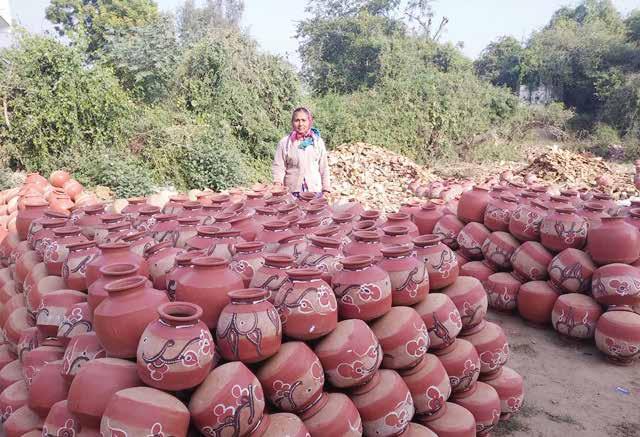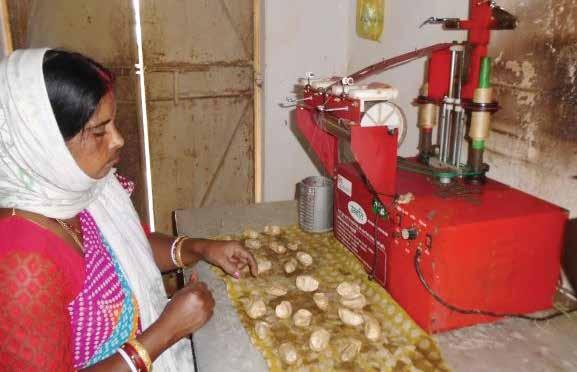
2 minute read
The Study Framework
Executive Summary
Introduction
Advertisement
As per the 73rd Round National Sample Survey (2015–16), around 63.4 million unincorporated nonagricultural micro small and medium enterprises (MSMEs) are estimated to be engaged in various economic activities in India that contribute to 29% of the total gross domestic product (GDP) and employ nearly 111 million people. The microenterprises constitute more than 99% of the entire MSME sector alone. The central and state governments have been rolling out relevant policies and schemes periodically to enhance and improve the infrastructure, technology, financing, and institutional support for the growth of MSMEs. Further, access and availability of key energy sources are the critical inputs that determine productivity and competitiveness in the sector. The micro- and home- based enterprises in rural areas are particularly heavily reliant on a wide range of fossil fuel-based energy sources, such as coal, wood, diesel, and grid electricity to meet their daily processing energy needs despite the fact that these fuel prices and related pollution are increasing. While the Government of India has almost achieved universal households’ electrification, the field studies undertaken by various research institutions in India including TERI, New Delhi have found that the gaps still exist in the quality and reliability of power supply in the rural areas of some of the major states that affect the day to day manufacturing at microenterprises clusters. At the same time, there are clear trends in terms of improvements in solar photovoltaic (PV) technology and its significant price reduction in the last few years. Solar energy, thus, not only reduces the dependency on fossil fuels but also makes cost of production competitive due to sustainable generation and decentralized management. Thus, it has been justified to carry out a feasibility assessment of solar PV applications in the MSME sector, particularly in the micro-enterprise and artisansbased clusters in rural areas to assess the scope for scaling up of solar energy.
The Study Framework
TERI with support from Shakti Sustainable Energy Foundation, New Delhi carried out a field study to explore the feasibility and potential of solar PV applications in the MSME sector in rural India. The objective of this study is to identify 8–10 micro- and home-based enterprise clusters, develop a road map for solar PV intervention in the feasible clusters, and influence evidence-based policymaking for scale up. To achieve this, the study carried out a situation analysis through literature review and preliminary stakeholder consultations. Based on the literature survey and consultations at the national level, five states were selected for scoping study. Finally, three states were shortlisted and a total of nine clusters (KhasbagBelgam powerloom, Chhannapatna wooden toy, Sidlaghatta silk twisting, and Shivarapatna stone idol-making clusters in Karnataka; Gandhinagar and Kutch Pottery, Surendranagar and Patan salt clusters in Gujarat; Bishnugarh brass, Maganpur sewing, and Kharasawan silk reeling in Jharkhand) were identified for undertaking primary survey. The study findings were shared with all relevant stakeholders by organizing state-level roundtable as well as through one-to-one discussion.




